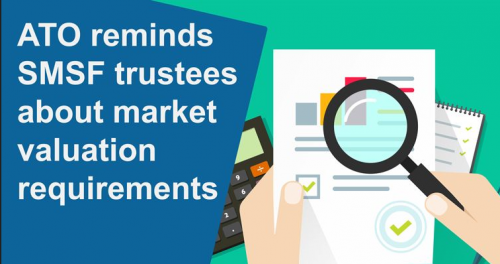The main residence exemption typically shields your family home from capital gains tax (CGT) upon its sale. However, as with many tax matters, it’s not straightforward. Below, we delve into the key aspects of the Main Residence Exemption to provide a comprehensive guide.
Qualifying as Your Main Residence
A home is usually deemed your main residence if:
- You and your family live in the house.
- Your personal belongings are in the house.
- You receive mail at this address.
- You register this address on the electoral roll.
- Utility services like telephone, gas, and electricity are connected in your name.
- You intend for it to be your main residence.
Interestingly, there is no specific time requirement for how long you must live in the home. The intention of making it your main residence is the key factor.
Generally, CGT applies to home sales unless you qualify for an exemption, partial exemption, or can offset the tax with a capital loss. If you’re an Australian tax resident, you can claim the full main residence exemption if:
- The home was your primary residence for the entire ownership period.
- You didn’t use the home to generate income.
- The land area is 2 hectares or less.
Partial Exemption
If your home was used to produce income, you may qualify for a partial exemption. This often arises in cases where you:
- Run a business from home (working from home is acceptable).
- Rent out the home or a part of it.
Since July 2023, platforms like Airbnb must report transactions to the ATO, which will match this data against reported income.
Foreign Residents and Changing Residency
Foreign residents cannot access the main residence exemption, even if they were residents for part of the ownership period. If you’re a non-resident when you sell the property, the exemption likely won’t apply. Conversely, if you’re a resident at the time of sale and meet other criteria, you could qualify for the exemption even if you were a non-resident for part of the ownership period.
The Absence Rule
The absence rule allows your home to remain your main residence for tax purposes even if you are not living there, under certain conditions:
- Rented Out: The home can be rented out for up to six years and still qualify as your main residence.
- Not Producing Income: If the home is not rented out and not producing income, it can remain your main residence indefinitely.
It’s crucial to note that applying the absence rule to one property prevents you from claiming the main residence exemption on another property during the same period.
Timing
Your home generally qualifies as your main residence from the time you move in. If you move in as soon as practicable after the settlement date, it’s considered your main residence from the acquisition date.
If you buy a new home but haven’t sold your old one, you can treat both properties as your main residence for up to six months without affecting your main residence exemption eligibility. This applies if your old home was your main residence for at least three continuous months within the 12 months before you sold it and was not used to produce income during any part of that time when it was not your main residence. If selling the old home takes more than six months, the main residence exemption may apply to both homes only for the last six months before selling the old home. Before this period, you may choose which home is your main residence, with the other becoming subject to CGT.
If your new home is rented when purchased and you cannot move in, it is not your main residence until you do. Unforeseen circumstances, like hospitalization or an overseas work posting, might allow the main residence exemption if you move in as soon as practicable after resolving the issue. Inconvenience is not a valid reason, and documentation is required.
Couples and Main Residences
For couples, the rules are slightly different. Couples cannot claim the full CGT exemption on two separate homes. You have two options:
- Single Main Residence: Choose one home as the main residence for both.
- Split Exemption: Nominate different homes as main residences, splitting the exemption between you.
If you choose different homes:
- Owning 50% or less means the home is your main residence, qualifying you for the exemption.
- Owning more than 50% means the home is your main residence for half the period.
Divorce and the Main Residence
Assuming the home is transferred between spouses (not involving a trust or company), both individuals used the home solely as their main residence during their ownership period, and all other eligibility conditions are met, a full main residence exemption should be available when the property is eventually sold.
If the home qualified for the main residence exemption for only part of the ownership period for either individual, a partial exemption might be available. In this case, the spouse receiving the property may need to pay CGT on the gain from their share of the property received as part of the settlement when they eventually sell it.
Conclusion
While the Main Residence Exemption offers substantial benefits, the rules can be complex and vary based on individual circumstances. Factors such as changes in residency status, periods of absence, and property use can all impact your eligibility. Therefore, seeking professional advice is highly recommended to navigate these rules effectively and ensure you are maximising your tax benefits.
Pitt Martin Group is a CPA accounting firm, providing services including taxation, accounting, business consulting, self-managed superannuation funds, auditing and mortgage & finance. We spend hundreds of hours each year on training and researching new tax laws to ensure our clients can maximize legitimate tax benefit. Our contact information are phone +61292213345 or email info@pittmartingroup.com.au. Pitt Martin Group is located in the convenient transportation hub of Sydney’s central business district. Our honours include the 2018 CPA NSW President’s Award for Excellence, the 2020 Australian Small Business Champion Award Finalist, the 2021 Australia’s well-known media ‘Accountants Daily’ the Accounting Firm of the Year Award Finalist and the 2022 Start-up Firm of the Year Award Finalist, and the 2023 Hong Kong-Australia Business Association Business Award Finalist.
Pitt Martin Group qualifications include over fifteen years of professional experience in accounting industry, membership certification of the Australian Society of Certified Practising Accountants (CPA), Australian Taxation Registered Agents, certified External Examiner of the Law Societies of New South Wales, Victoria, and Western Australia Law Trust Accounts, membership certification of the Finance Brokers Association of Australia Limited (FBAA), Registered Agents of the Australian Securities and Investments Commission (ASIC), certified Advisor of accounting software such as XERO, QUICKBOOKS, MYOB, etc.
This content is for reference only and does not constitute advice on any individual or group’s specific situation. Any individual or group should take action only after consulting with professionals. Due to the timeliness of tax laws, we have endeavoured to provide timely and accurate information at the time of publication, but cannot guarantee that the content stated will remain applicable in the future. Please indicate the source when forwarding this content.
By Zoe Ma @ Pitt Martin Tax





